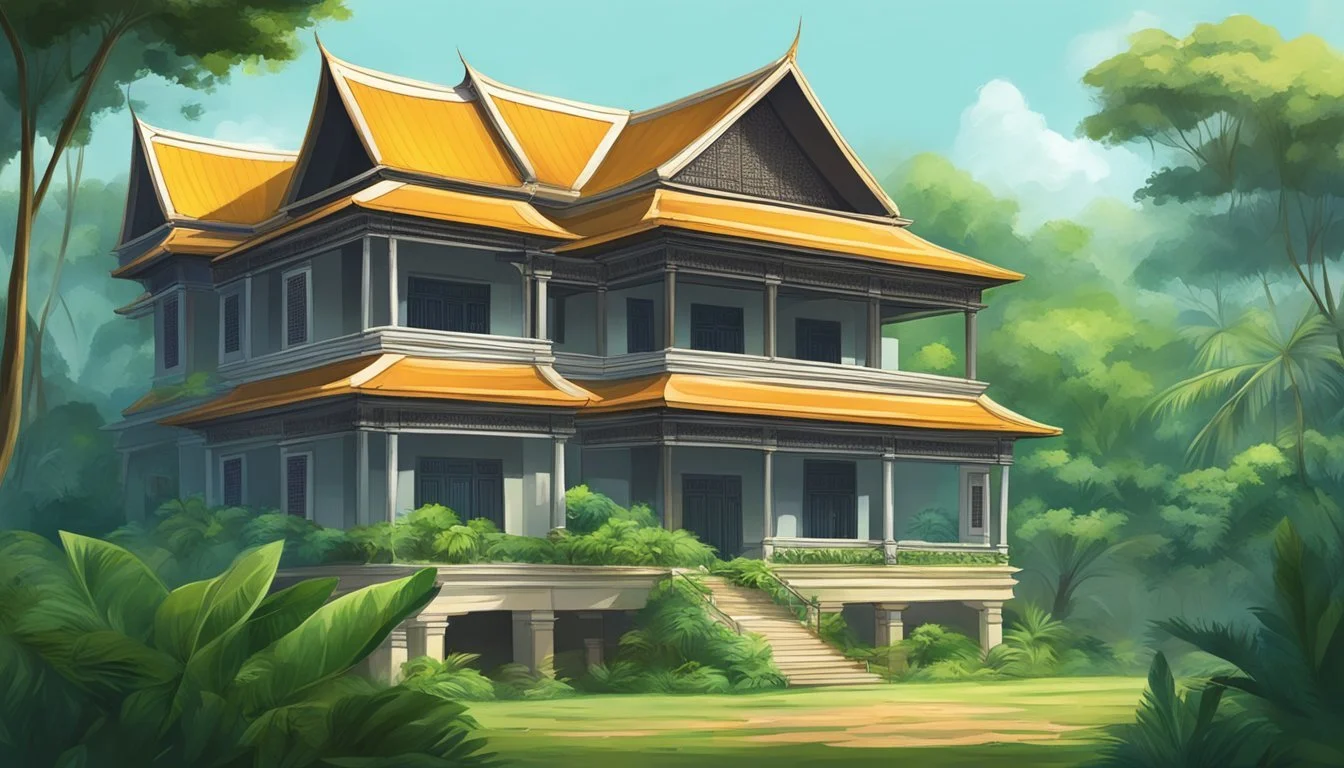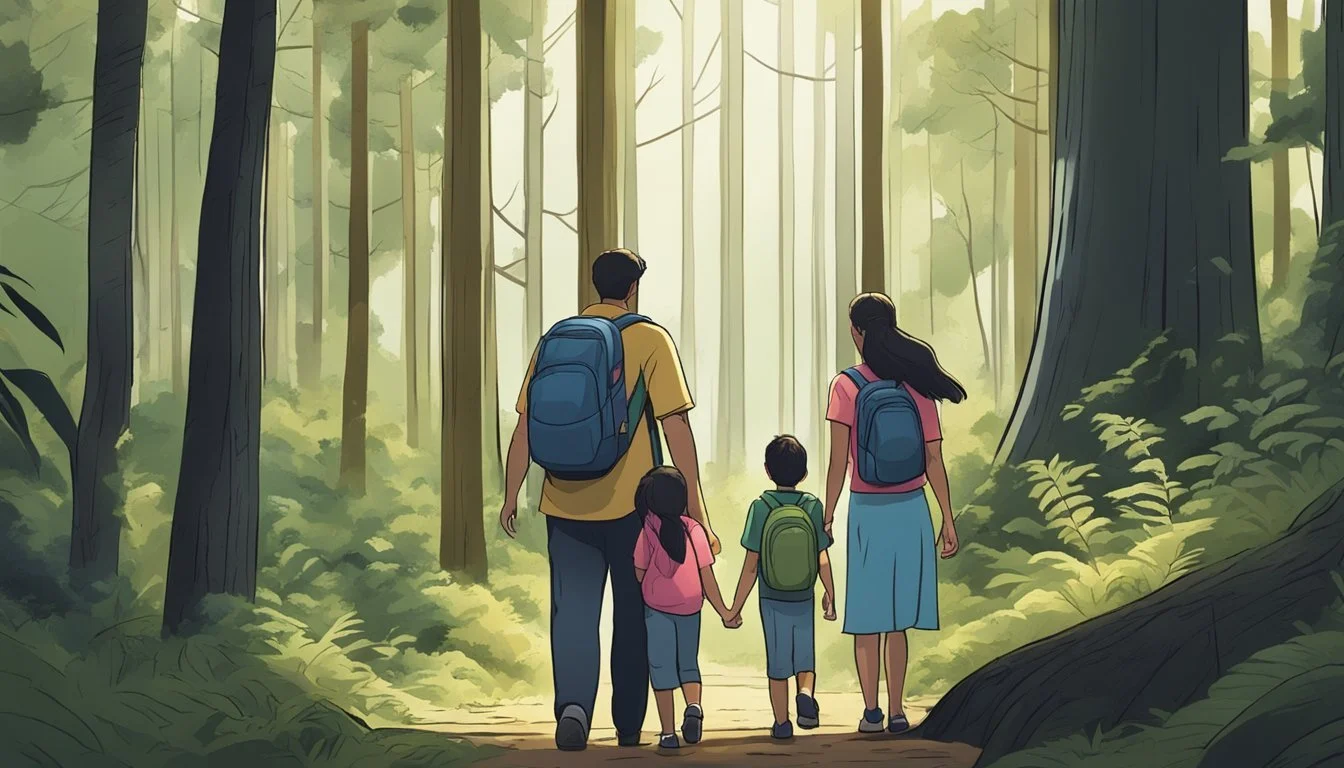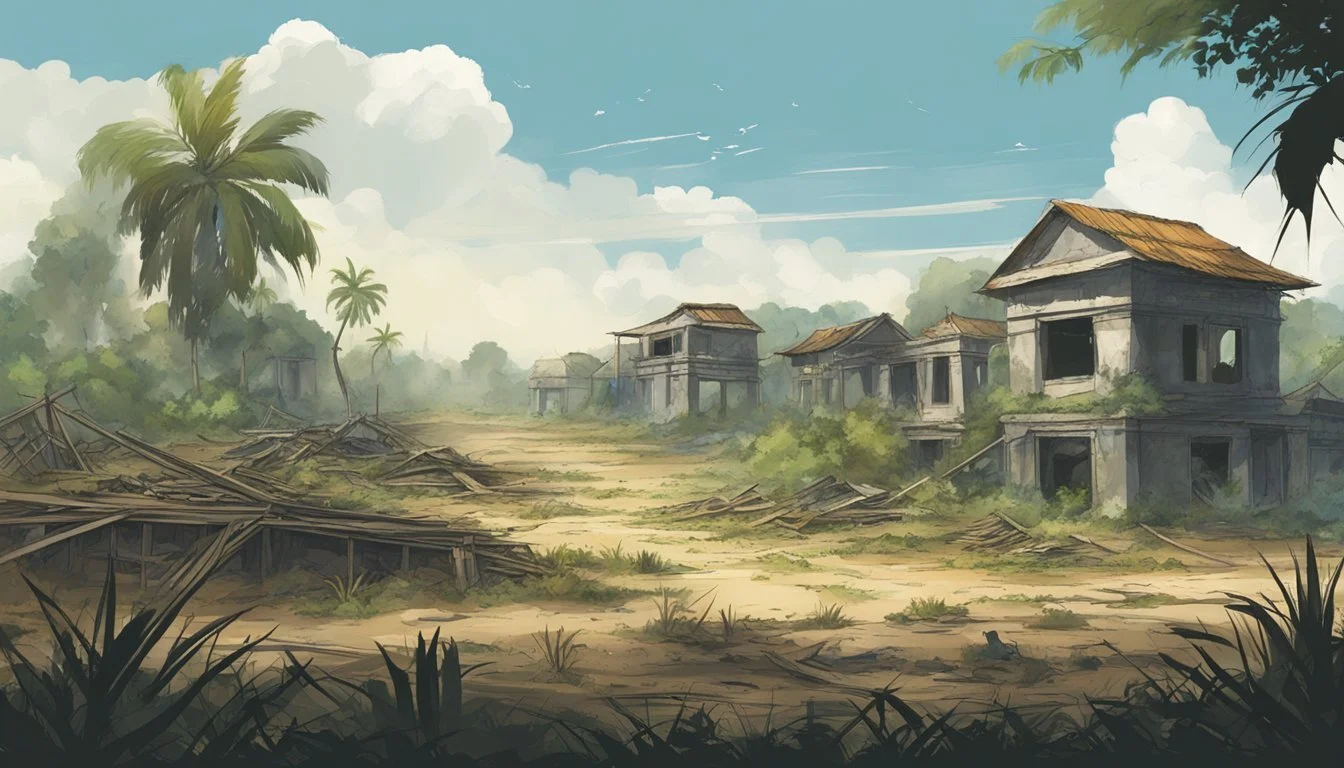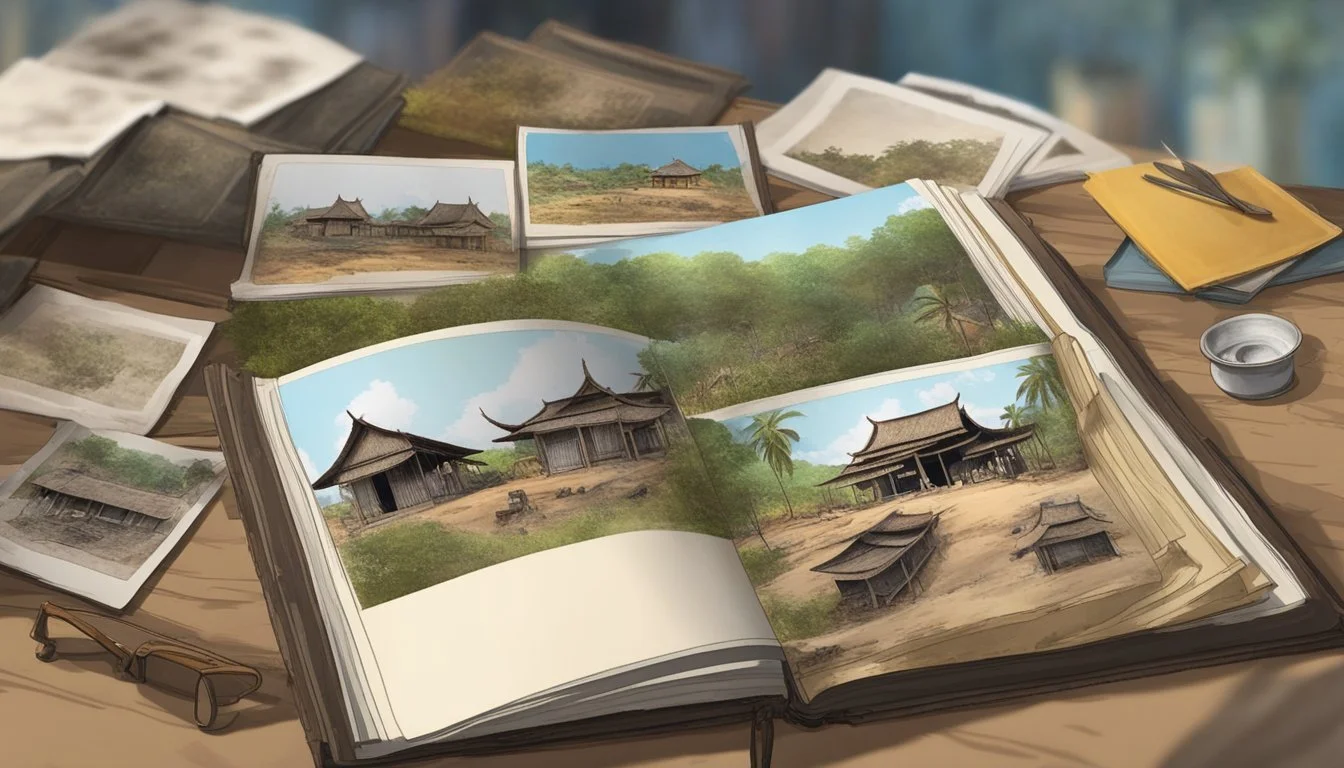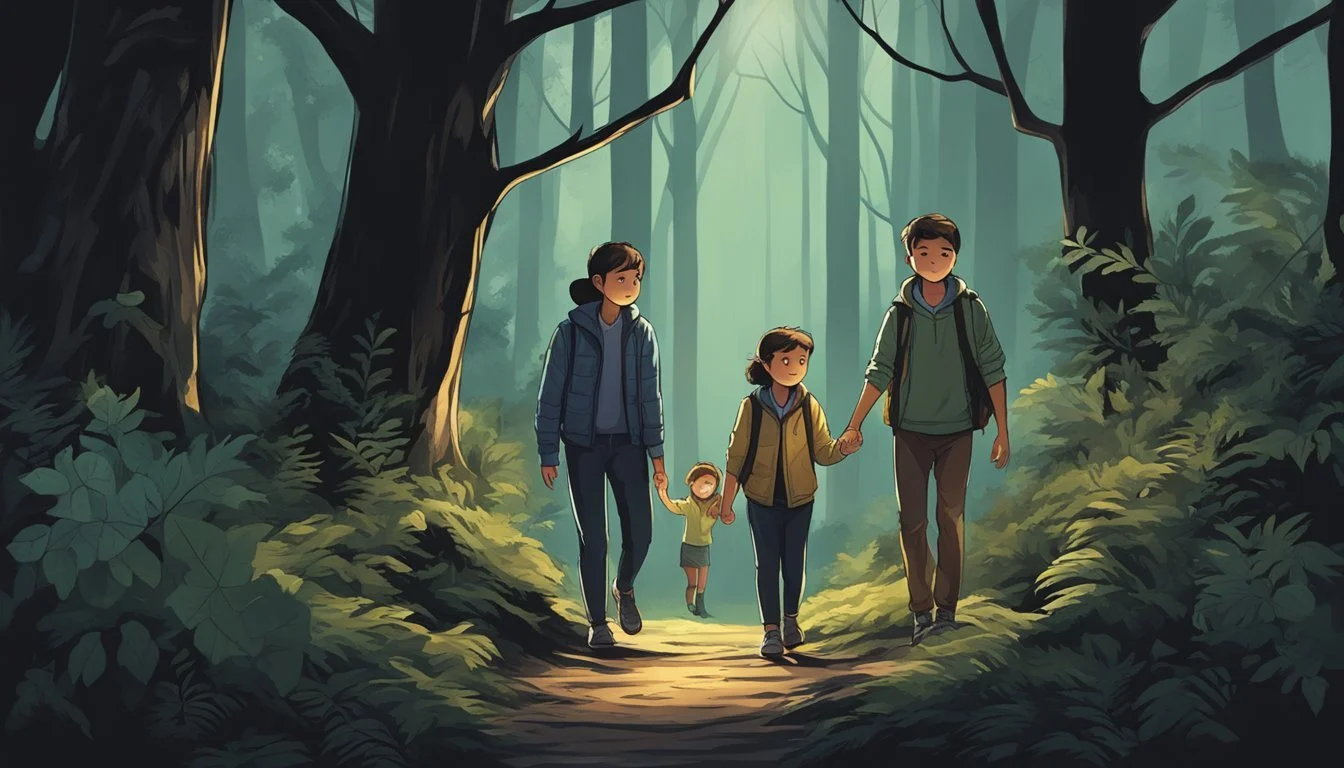Surviving the Khmer Rouge
Loung Ung's Harrowing Journey from Cambodia's Genocide
Angelina Jolie's film "First They Killed My Father" brings to light the harrowing true story of Loung Ung, a survivor of the Cambodian genocide. Set in 1975, the movie depicts the rise of the Khmer Rouge regime and its brutal campaign to reshape Cambodian society through forced labor and mass executions.
The film is based on Ung's memoir, recounting her experiences as a five-year-old child when the Khmer Rouge seized power and began their reign of terror. Ung's family, like millions of others, was forcibly evacuated from their home in Phnom Penh and sent to labor camps in rural areas. The regime's goal was to create an agrarian utopia, but their methods resulted in widespread starvation, disease, and death.
Jolie's adaptation offers a chilling glimpse into one of history's darkest periods, seen through the eyes of a young girl struggling to survive. The movie's powerful narrative serves as a testament to human resilience and a reminder of the atrocities committed during the Cambodian genocide, which claimed an estimated 1.5 to 3 million lives between 1975 and 1979.
Historical Context of the Khmer Rouge Era
Cambodia experienced dramatic political upheaval in the 1970s as the Khmer Rouge rose to power. The regime's brutal policies and ideology reshaped Cambodian society and led to widespread devastation.
Political Climate in Cambodia Pre-1975
Cambodia gained independence from France in 1953 under King Norodom Sihanouk. The country initially maintained neutrality during the Vietnam War but faced increasing instability.
In 1970, General Lon Nol staged a coup, deposing Sihanouk and aligning Cambodia with the United States. This shift exacerbated tensions and fueled the communist Khmer Rouge insurgency.
The Lon Nol government struggled with corruption and economic issues. U.S. bombing campaigns targeting Vietnamese communists in Cambodia caused significant civilian casualties and displacement.
Rise of the Khmer Rouge and Pol Pot
The Khmer Rouge, led by Pol Pot, capitalized on rural discontent and anti-government sentiment. They promised radical reforms and portrayed themselves as liberators.
On April 17, 1975, Khmer Rouge forces captured Phnom Penh. They immediately began implementing their vision of an agrarian communist utopia.
The regime forcibly evacuated cities, abolished money, and collectivized property. Intellectuals, professionals, and ethnic minorities faced persecution.
Pol Pot's "Year Zero" policy aimed to erase foreign influences and create a self-reliant, classless society. This led to the destruction of infrastructure, education, and traditional culture.
Understanding 'First They Killed My Father'
"First They Killed My Father" offers a gripping firsthand account of the Cambodian genocide under the Khmer Rouge regime. The memoir provides unique insights into this dark period of history through the eyes of a child survivor.
Author Loung Ung's Perspective
Loung Ung, a Cambodian-American author, penned "First They Killed My Father" based on her childhood experiences. Born in 1970, Ung was only five years old when the Khmer Rouge seized power in 1975. Her memoir offers a child's perspective on the brutality and hardships endured during this time.
Ung's narrative captures the confusion, fear, and loss experienced by many Cambodians. She details the forced evacuation from Phnom Penh, separation from family members, and struggle for survival in labor camps.
The author's vivid recollections provide readers with a deeply personal and emotional connection to historical events. Her story highlights the resilience of the human spirit in the face of unimaginable adversity.
Memoir Synopsis
"First They Killed My Father" chronicles Ung's life from 1975 to 1980, during the Khmer Rouge's reign. The memoir begins with the fall of Phnom Penh and follows Ung's family as they are forced into the countryside.
Ung describes the harsh conditions in labor camps, where she and her siblings faced starvation, illness, and constant indoctrination. The narrative details the loss of family members, including her parents and two sisters.
The book also recounts Ung's experiences as a child soldier, trained by the Khmer Rouge. It concludes with her escape to Thailand and eventual resettlement in the United States.
Through Ung's eyes, readers gain insight into the Khmer Rouge's attempt to create an agrarian utopia, which resulted in the deaths of an estimated 1.5 to 2 million Cambodians.
Survival Under the Khmer Rouge
Life under the Khmer Rouge regime was marked by extreme hardship, constant fear, and a daily struggle to stay alive. Cambodians faced brutal working conditions, severe food shortages, and the constant threat of execution.
Daily Life and Challenges
The Khmer Rouge imposed a harsh agrarian lifestyle on the population. People were forced to work long hours in the fields, often 12-14 hours a day, with little food or rest. Meals consisted of watery rice porridge, barely enough to sustain life.
Families were separated, with children often sent to labor camps away from their parents. Education was forbidden, and intellectuals were targeted for execution. Basic necessities like medicine were scarce or nonexistent.
The regime maintained control through fear and violence. Public executions were common, and people could be killed for minor infractions or simply on suspicion of disloyalty.
Methods of Resilience and Resistance
Despite the oppressive conditions, many Cambodians found ways to survive and resist. Some hid their true identities to avoid persecution, especially those with education or professional backgrounds.
Sharing food and resources within trusted groups became crucial for survival. People developed secret codes and signals to warn each other of danger.
Small acts of defiance, like preserving cultural traditions or teaching children in secret, helped maintain hope and humanity. Some brave individuals smuggled food or medicine to those in need.
Others managed to escape, fleeing to refugee camps in neighboring countries. These survivors often faced further hardships but played a crucial role in documenting the atrocities and eventually rebuilding Cambodia.
The Emotional Journey
Survivors of the Khmer Rouge regime faced profound psychological challenges as they grappled with loss, trauma, and a search for identity. Their journey involved confronting painful memories while striving to rebuild their lives and find meaning in their experiences.
Dealing with Loss and Trauma
Many survivors struggled with intense grief and post-traumatic stress disorder. Nightmares, flashbacks, and anxiety were common. Some found it difficult to trust others or form close relationships after witnessing extreme violence and betrayal.
Survivors often felt guilt for having lived while loved ones perished. This "survivor's guilt" could be paralyzing. Many turned to creative outlets like writing or art to process their emotions.
Support groups and counseling helped some survivors work through their trauma. Sharing stories with others who understood their experiences provided comfort and validation.
The Quest for Identity and Closure
Rebuilding a sense of self after the genocide proved challenging for many survivors. Some felt torn between their Cambodian heritage and new lives in adopted countries.
Many survivors sought to honor lost family members by preserving Cambodian culture and language. Others focused on education and career success as a way to create meaning from their ordeals.
Returning to Cambodia was often an emotional but healing experience. Visiting memorial sites and participating in traditional ceremonies helped some find closure.
Advocacy work, like educating others about the genocide, allowed survivors to reclaim their voices and transform pain into purpose.
The Aftermath and Legacy
The Khmer Rouge regime left deep scars on Cambodia's society and people. Its impacts continue to reverberate through efforts at justice, reconciliation, and historical understanding.
Cambodia's Recovery and Trials
Cambodia faced immense challenges in rebuilding after the Khmer Rouge's fall. The country grappled with widespread poverty, destroyed infrastructure, and a traumatized population. International aid played a crucial role in recovery efforts.
In 1997, Cambodia requested UN assistance to bring Khmer Rouge leaders to justice. This led to the establishment of the Extraordinary Chambers in the Courts of Cambodia (ECCC) in 2006.
The ECCC, a hybrid court, prosecuted key figures like Nuon Chea and Khieu Samphan. These trials aimed to provide accountability and closure for victims.
The Memoir's Impact on Historical Narratives
Loung Ung's memoir "First They Killed My Father" has significantly shaped understanding of the Khmer Rouge era. The book offers a child's perspective on the genocide, humanizing the statistics of mass tragedy.
Ung's work has been translated into multiple languages, reaching a global audience. It has become required reading in many schools, educating new generations about Cambodia's history.
The film adaptation, directed by Angelina Jolie, further amplified the memoir's impact. It brought Ung's story to an even wider audience, sparking renewed interest in Cambodia's past.
Analysis and Criticism
"First They Killed My Father" offers a powerful portrayal of the Khmer Rouge regime through a child's eyes. The memoir and its film adaptation have garnered significant attention for their unflinching depiction of this dark period in Cambodian history.
Literary Analysis of 'First They Killed My Father'
The memoir employs vivid imagery and a child's perspective to convey the horrors of the Khmer Rouge era. Loung Ung's narrative style creates an intimate connection with readers, allowing them to experience the events through her young eyes.
The author's use of present tense adds immediacy and intensity to the story. This technique immerses readers in the unfolding trauma, heightening the emotional impact of the experiences described.
Symbolism plays a crucial role in the book. The loss of Ung's privileged life in Phnom Penh represents the broader destruction of Cambodian society. Her family's struggle for survival mirrors the nation's fight to endure under oppression.
Critical Reception and Reviews
Critics have praised "First They Killed My Father" for its raw honesty and compelling storytelling. Many reviewers highlight the book's ability to educate readers about the Cambodian genocide through a personal narrative.
The film adaptation, directed by Angelina Jolie, received positive reviews for its cinematography and authentic portrayal of events. Critics commended Jolie's direction and the performances of the primarily Cambodian cast.
Some reviewers noted that while the film is visually striking, it may not fully capture the depth of emotion present in the book. Others praised its ability to bring this important story to a wider audience through the medium of cinema.
Educational Significance
"First They Killed My Father" serves as a powerful educational tool, offering insights into the Cambodian genocide and its lasting impact. The book's personal narrative provides a compelling lens through which to examine historical events and human rights issues.
The Book in Academic Circles
"First They Killed My Father" has gained prominence in academic settings. Universities and high schools incorporate the memoir into curricula focusing on Southeast Asian history, genocide studies, and human rights. The book's first-hand account offers students a visceral understanding of the Khmer Rouge regime's atrocities.
Scholars analyze Ung's work for its historical value and literary merit. It provides a child's perspective on trauma, which is less common in genocide literature. This unique viewpoint allows for discussions on memory, childhood experiences in conflict zones, and the long-term effects of war on individuals and societies.
Lessons on Resilience and Human Rights
Ung's story exemplifies human resilience in the face of extreme adversity. Educators use the book to teach about the importance of human rights and the consequences of their violation. Students learn about the signs of impending genocide and the need for international intervention.
The memoir sparks discussions on refugee experiences, cultural identity, and the challenges of assimilation. It highlights the long-term psychological impacts of war on survivors and their families. These lessons extend beyond the Cambodian context, encouraging students to consider current global conflicts and human rights issues.
Through Ung's narrative, readers gain a deeper appreciation for peace, democracy, and the value of preserving historical memory.
Adaptations and Media Representations
Loung Ung's memoir has inspired various artistic interpretations, bringing her powerful story to wider audiences. These adaptations have raised awareness about the Khmer Rouge regime and its impact on Cambodia.
Film Adaptation by Angelina Jolie
Angelina Jolie directed and co-wrote the Netflix film adaptation of "First They Killed My Father" in 2017. The movie closely follows Ung's experiences during the Khmer Rouge era, with young Cambodian actress Sareum Srey Moch portraying Loung. Jolie collaborated extensively with Ung to ensure an authentic retelling of her story.
The film received critical acclaim for its sensitive portrayal of the subject matter and its focus on the child's perspective. It was shot entirely in Cambodia with an all-Cambodian cast, adding to its authenticity. The movie's visual style and minimal dialogue effectively convey the emotional weight of Ung's experiences.
Other Artistic Endeavors and Interpretations
Ung's memoir has inspired other forms of artistic expression beyond film. Theatre productions have brought her story to the stage, allowing audiences to engage with the narrative in a different medium. These adaptations often emphasize the themes of survival, family bonds, and resilience in the face of unimaginable hardship.
Visual artists have created paintings and sculptures inspired by Ung's account, capturing key moments and emotions from her story. These works serve as powerful reminders of the Cambodian genocide and its impact on individuals and families. Educational programs have also incorporated Ung's memoir into curricula, using it as a tool to teach about human rights and historical events.


